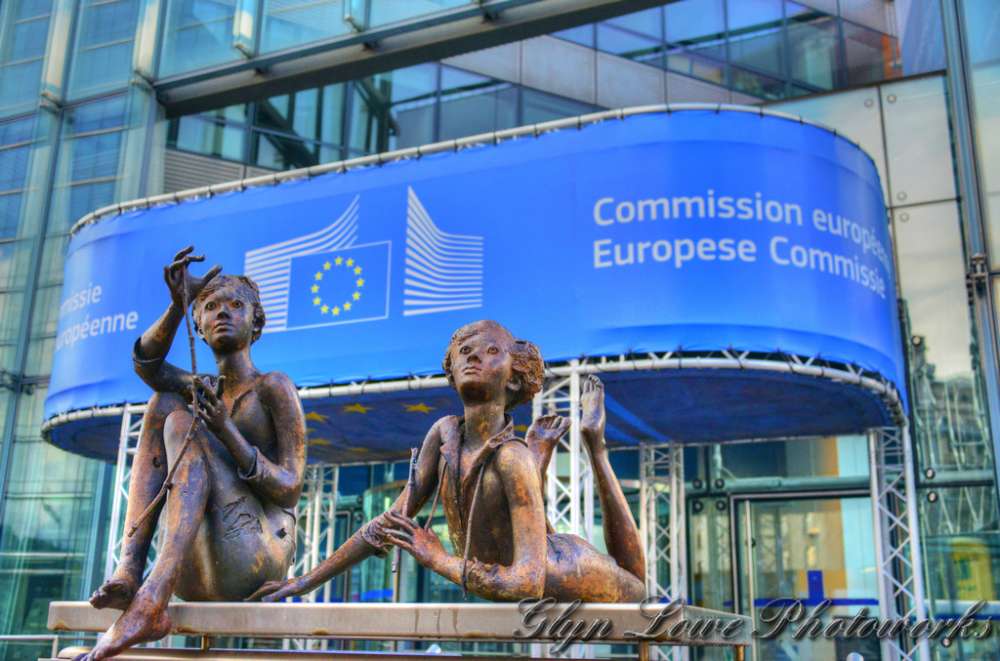The evolution of per capita GDP in Cyprus compared to the EU average “reflects the severe impact of the economic and financial crisis on the Cypriot economy,” but even so it has grown by 31% in the period 2003-2018, according to data published today by the European Commission on the 15th anniversary of the EU`s large-scale enlargement of 2004.
According to the Commission, €1.7 billion was invested in Cyprus over the period 2004-2020 under the European Structural and Investment Funds and €98 million from additional investments mobilized in Cyprus under the Juncker Plan from 2014.
The Commission notes that since the start of the Commission`s 2014 mandate, the European Structural and Investment Funds and the Juncker Plan have supported 407 small and medium-sized enterprises in Cyprus. From 2014, the EU provides structural funding equal to 20% of all public investment in Cyprus.
According to the same data, the EU is investing the equivalent of €1,069 per Cypriot citizen in structural funding. The EU funds projects in the field of cohesion in Cyprus up to 85% of their value. 1871 businesses receive support. 235,000 people are served by better wastewater treatment facilities in Limassol. 200 companies collaborate with research and innovation centres, 2,100 households benefit from energy efficiency measures.
Cyprus was one of the 10 Countries that Joined the EU in 2004. For these Member States to catch up with the EU average in terms of growth and income, the EU invested massively via its Cohesion Policy and, since 2014, via the Investment Plan for Europe, the Juncker Plan. These investments have had very positive results on the ground, not only thanks to EU funding but also to the efforts of these Member States to reform and become attractive places for investors and for businesses to settle and thrive.
“The decision in 2004 to embrace 10 European countries was a great moment for our continent and a great moment in history. The accession of the Central and Eastern European countries, and the courage of their people in preparing for that accession, is what allowed us to reconcile our continent’s geography with its history. I remain an ardent fan of enlargement today,” said President of the European Commission Jean-Claude Juncker.
Enlargement benefits all. By extending the Single Market, it opens new markets to companies in the EU and in the incoming countries. With higher income in these Member States thanks to EU investments, trade and investment opportunities increase everywhere in the EU. EU investments in these countries can contribute to jobs and growth in other Member States even more directly, when a company works as a contractor in an EU-funded project across the border.
For example, it is estimated that almost a third of the impact of Cohesion Policy on Germany‘s GDP comes from the funding programmes implemented in other Member States. Finally, a larger Single Market is more attractive to investors worldwide: Foreign Direct Investment to the EU has more than doubled as a percentage of GDP since accession – from 15.2% of GDP in 2004 to 40.9% of GDP in 2017.
As further examples, the Commission reports that the EU is funding the construction of a new library at the University of Cyprus. “The library, designed by architect Jean Novel, will have computer rooms and will be open to everyone,” he says. In addition, the EU also funds e-learning services for the Cyprus University of Technology and funded major urban regeneration projects in Limassol. These projects have greatly improved the quality of life in the city and have made the historic center and the coastal front more attractive.
In addition, the EC notes the example of Engino, a Cypriot start-up company that exports games in more than 50 countries. According to the Commission, “its products include simple devices, solar panels and wireless robotics, they are all environmentally friendly and use recycled plastic, sustainable beechwood and motors powered by solar panels rather than batteries.” An EU loan helped the company build new facilities and upgrade its equipment.
Finally, Cyprus received €150.8 million under the EU Horizon 2020 Research and Innovation Program. Under Horizon 2020, a programme called ‘Spreading excellence and enlargement’ is intended for capacity building in universities and research organizations. All Member States that joined the EU after 2004 can receive financial support, build partnerships across Europe and set up research centers under this programme. In this context, Cyprus received €40.4 million






